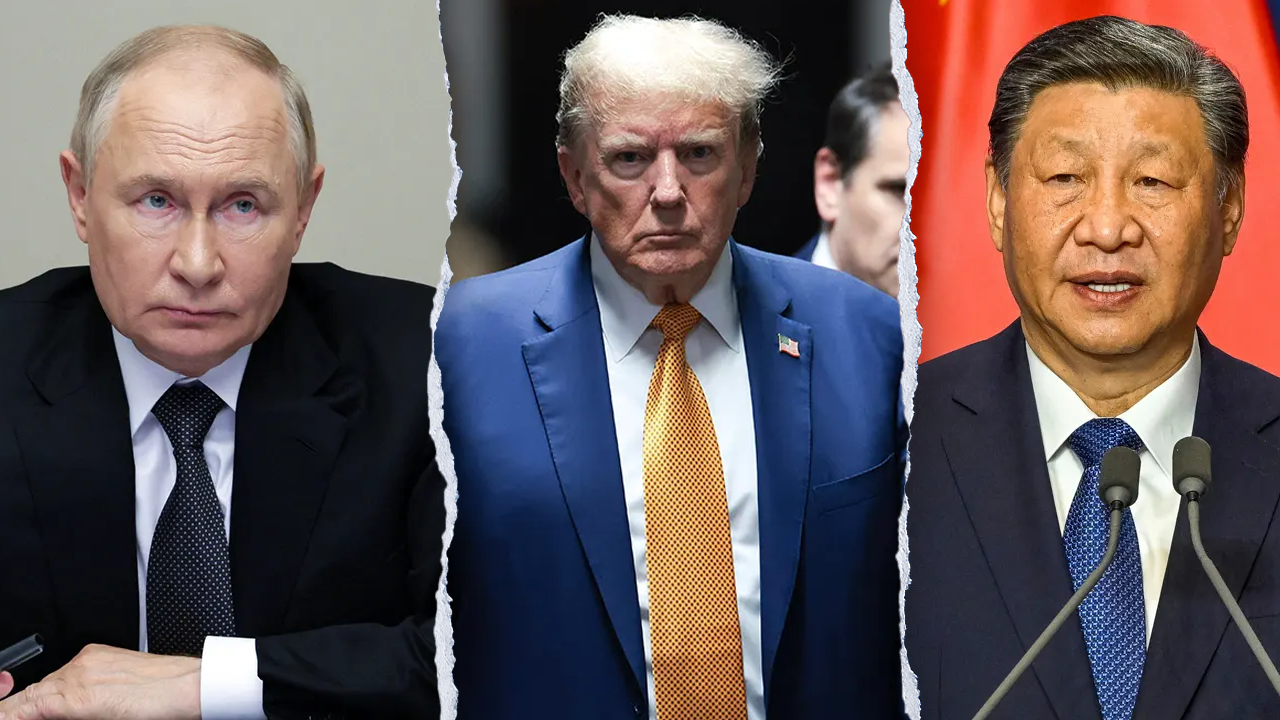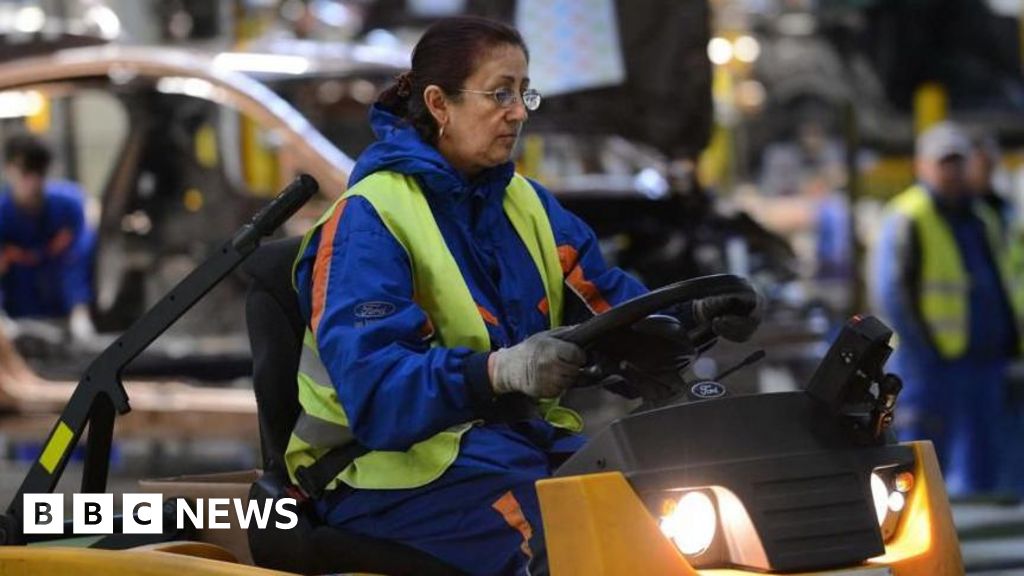World
US unreliability will cause countries to hedge on China: Sullivan to Trump team

Washington: The Joe Biden administration has warned the Donald Trump administration that it must signal American policy continuity on the approach to China and Indo-Pacific since departing from the Biden approach will generate huge risks. It has warned Trump’s team that “pulling the rug from under Ukraine” will not just impact Europe but also the Indo-Pacific since “China is watching”. And it has warned that questions about American reliability and staying power and commitment will lead other countries to “hedge” on China.
Speaking to a select group of reporters at the White House on Friday, US national security adviser Jake Sullivan offered these three stark warnings. He acknowledged, in response to a question from HT, that he thought there will be a huge debate within the Trump team on how to deal with China and he did not know how it would be resolved. HT, in a column at the end of December, had written about how Trump had reopened the debate on US approach to China after having taken a hawkish approach in his first term that Biden continued.
Sullivan, along with Deputy Secretary of State Kurt Campbell, are widely considered the architects of the Biden administration’s approach to China. This approach saw the elevation of Quad to the leaders’ level, the US-Japan-South Korea trilateral and US-Japan-Philippines trilateral, the creation of AUKUS, the strengthening of the US-India strategic partnership, a major push on supply chain diversification and cooperation on technology. It featured a latticework approach where it wasn’t just the US deepening ties with its allies and partners but allies and partners doing so among themselves, and closer coordination between European and Indo-Pacific treaty allies of America and integration of the two theatres.
Bipartisan support
While saying that the Indo-Pacific strategy had broad bipartisan support, and there were many voices including in the incoming Trump team who spoke in its favour — he did not name them but the allusion appeared to be to NSA Mike Waltz and Secretary of State Marco Rubio — Sullivan acknowledged that he did not know what the new administration will do.
“The case we will make to them is that the American position in the region is incredibly strong right now. The moves we made over the last four years to take this hub and spoke model of alliances and turn it into more of a network through trilateral partnerships, through elevation of the Quad, through new initiatives like AUKUS has enhanced our deterrence, has strengthened the alignment of like-minded states vis-a-vis the PRC and has shifted the balance of power in the region in ways that I think people were not projecting four years ago.”
Sullivan said that in the case of technology, supply chains, clean energy, and infrastructure, the Biden team’s groundwork had created opportunities for the next administration to take it forward in ways that would enhance American position. “So for me, real departures from the Biden approach in the Indo-Pacific bring risk because the Biden approach in the Indo-Pacific is working, it’s working in a big way. And so I hope that they will carry it forward. And as I said, if you look at prominent Republican voices, this is an area where I think there’s more convergence than there is debate or critique. And so that gives me some hope that there will be the kind of continuity.”
But that hopeful note turned to caution and even a degree of apprehension in the 45-minute conversation that Sullivan had with reporters and in responses to questions.
Why Ukraine affects Indo-Pacific
When asked about the impact of the incoming administration’s Ukraine policy approach on Indo-Pacific, Sullivan said that if the US pulled the rug, it would impact both the health of the European alliance and have reverberations in Indo-Pacific. “It was the former Japanese prime minister (Fumio) Kishida who said basically what happens in Ukraine really matters for the Indo-Pacific because China is watching and I think that remains the case today. The incoming team should recognize that deepening the links between our democratic allies in Europe and our democratic allies and partners in the Indo-Pacific is a strategic initiative that we’ve really set in motion and that it’s profoundly in our interest for them to continue.”
He said Europe was central in the effort to compete with China because this was not just about “geography and physical military positioning,” but about “economics and technology.” “And there the China-Europe relationship is critical just as China’s relationship with India, Japan, Korea, Australia, are critical too. So the incoming team recognizing that the playing field for competition is much more broad-based than just the traditional security domain, I think should lead them to the conclusion that the Biden strategy of knitting together Europe and Asia is vital to successfully competing with China.”
The resilience of non-US relationships
In response to a question on whether the other relationships among allies and partners within Indo-Pacific with the same strategic outlook would continue even if the US approach shifted, Sullivan said that the India-Japan or Japan-Philippines relationships had a “depth and quality” which had an “escape velocity,” but said the trilateral between US-Japan-Korea was vital for the period ahead.
“If the US absents itself from continuing to cultivate that, I think there will be some negative consequences that come from it. But if you look around at the other relationships, Australia, India, Japan, Philippines, and some of the new players that are engaging in a greater way with those countries like Vietnam, one of the legacies of the Biden administration will not just be how did America enhance its relationships, but how did like-minded democratic allies and partners deepen their own because they see both common challenges and opportunities in the region and they bought into a common vision of the free and open Indo-Pacific. I think that will carry forward even if there are adjustments or changes in US policy.”
Hedging on China
HT asked Sullivan whether the uncertainty about what US would do is creating incentives for states in the Indo-Pacific to make separate deals with China before Trump possibly does a deal, at least tactically and in the short and medium term. In addition, had the political circumstances in the region that enabled the Biden administration’s approach also changed — for instance, South Korea and Philippines had political leaders willing to assert against China, India had a tense border standoff with China?
Sullivan said that he believed that the long-term strategy would work irrespective of who was occupying the leadership position in many of the Indo-Pacific countries. “But it works better when you have especially willing partners. So it’s more a matter of degree than kind. We did get leaders who were particularly invested in joining us in this strategy and you could have leaders who are less invested over time, but I don’t think it changes the basic direction. It may just change the speed or the scale with which we succeed in implementing the strategy.”
He then added, tellingly, “I do worry that questions about America’s reliability and staying power with our allies and partners will lead countries to say maybe we need to hedge with China. I think that is a genuine concern. And so my hope is that when the new administration comes in, they send a clear message of continuity and staying power and commitment to our allies and partners that they say we are going to build upon the strategic position of the United States in the region. We are going to build upon this network strategy. We are going to continue to invest in these countries because I think if they do that, then the strategy can continue to pay dividends in the years ahead regardless of domestic political changes in the key countries.”
In response to another HT question on which constituencies had resisted the Biden administration’s China approach the most and whether it was tech and Wall Street that may have more influence in the Trump team, Sullivan said, “I actually found the technology community had questions about small yard high fence about our export controls and there were varying opinions on the subject across the technology community, the technology industry. But, broadly speaking, I did not feel that we got a massive amount of pushback in working through those export controls and other steps. How finance, tech, other industries relate to the incoming administration, your guess is as good as mine.”
Sullivan then said that there was going to be a huge debate on China. “I think there’s going to be a huge debate in the incoming administration that will reflect very different perspectives on the way to deal with China and I’m not sure how that debate will ultimately get resolved, but I will be watching it just like you guys will be watching.”








